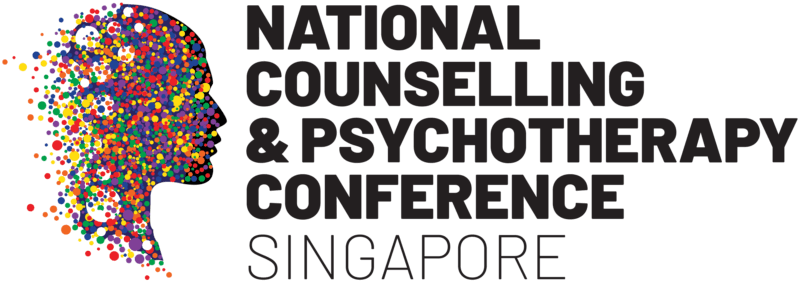Agenda
7 October 2025
09:00 am – 5:00 pm
9:00 AM
Introduction by Chairperson
9:05 AM
Supporting Clients in Narcissistic/Antagonistic/Emotionally Abusive Relationships: Applying an Antagonism-Informed Framework
Many clients in relationships characterized by invalidation, contempt, dismissiveness, betrayal, control, and manipulation with partners who may present to the world as successful, charismatic and even gregarious experience a range of psychiatric and psychosocial fallout including confusion, rumination, regret, helplessness, self-blame, self-doubt, hypervigilance, apathy, negative mood states such as anxiety, and physiological impacts as well.
The standard approach of “shared responsibility” in relationships can often reinforce the cycle of self-blame, loss of individuation, and decision “stuckness” clients often struggle with in these relationships.
This session will cover:
- Understanding the constructs of narcissism and antagonism and how these dynamics show up in relationships.
- The fallout of narcissistic dynamics in close relationships.
- The tenets of an antagonism informed model when working with clients experiencing narcissistic relationships
The keynote will be a custom recorded session followed by a LIVE Q&A with Dr. Ramani who will answer audience questions in real time
Speaker:

Dr. Ramani Durvasula
Clinical Psychologist & Author
9:55 AM
Leading with Psychological Safety: A Foundation for Workplace Mental Health
Psychological safety can form the bedrock of mental well-being; especially in the workplace, enabling open communication and risk taking amongst teams and colleagues.
This session will cover:
- Understanding psychological safety and what it is
- Encouraging open conversations and reducing stigma in the workplace
- Empowering leadership behaviours to build trust and improve engagement
Speaker:

Michelle Mah
Psychotherapist & Coach
Rebalance Training & Consulting
10:35 AM
NETWORKING & COFFEE BREAK
11:05 AM
Unlocking Trauma: a new model using Diathesis-Stress as the Key to Trauma Resilience and Recovery
Challenge the belief that trauma recovery depends on removing all stressors and triggers. Instead, it introduces a practical clinical model that embraces the inevitability of stress and focuses on building resilience through six key domains of the trauma response. The approach is grounded in neuroscience and has been successfully applied in a structured rehab setting in Australia.
This session will cover:
- Why avoiding triggers doesn’t lead to long-term trauma recovery
- An overview of the six domains involved in trauma resilience
- A practical model for working with trauma in clinical and therapeutic settings
Speaker:

Reshie Joseph
Practising Psychotherapist and Clinical Director
The Living Free Institute
11:35 AM
From Stigma to Support: Reframing Mental Health in the Singapore Context
Deep dive into how cultural, societal, and workplace stigmas around mental health impact individuals and communities in Singapore.
This session will cover:
- Factors influencing help-seeking attitudes and behaviours
- Provide strategies for professionals to challenge misconceptions and promote mental health awareness.
- Reshaping help-seeking attitudes and behaviours inside and outside of the therapy office
Speaker:

Dr. Jessie Chua, PsyD
Lead Psychologist
University Wellbeing Office, Nanyang Technological University
12:15 AM
Addiction in the 21st Century: Vapes, Gaming and Sex
Explore emerging dependencies in our hyper-connected, dopamine driven landscape.
This session will cover:
- How addiction manifests in Singapore today
- Deep-dive into the psychological underpinnings and causes of addiction today and consequent issues
- Therapist toolbox to address concerns and support clients with empathy & efficacy
Speaker:

Andy Leach
Director, Addiction Services M.A Couns. Psych; M.S.A.T. MAPACS 4S; AP Advanced Practitioner
12:55 PM
LUNCH
1:55 PM
Smarter Support: The Role of Artificial Intelligence in Transforming Treatments & Therapies
AI is here to stay. Used correctly, it can be a win for everyone in the ecosystem; therapists, clients and caregivers.
This session will cover:
- How to mitigate the risk of therapists being replaced by AI
- Research findings on the use of chatbots for mental health support
- Harnessing AI in therapy practice
Speaker:

Sarah Poh
CEO
The Therapy Platform Pte Ltd
2:35 PM
He Said, She Said: Couples Therapy For Intercultural or Interracial Relationships
Discover into how culture shapes emotional expression and how counsellors can help intercultural couples build a shared vision of love by adopting Western models of couple therapy to suit their needs.
This session will cover:
- How to help couples uncover, and translate, the cultural meaning behind their behaviours, as well as move toward their ideal of a “self-actualizing relationship”
- Practical strategies for helping couples co-create a relationship model that honours both their cultural roots and their shared goals
- Respectfully adapting evidence-based tools, like the “softened start-up” and “bids for attention,” for clients who value harmony, indirectness, or non-verbal care
Speaker:

Qi Zhai-McCartney
Psychotherapist & Counsellor (Member SAC, BACP)
Seeing Qi Therapy & Coaching
3:15 PM
NETWORKING & COFFEE BREAK
3:45 PM
Community Connections: Harnessing Group Dynamics for Holistic Mental Health
The need for authentic connections is critical in our hyper connected world. Explore how peer forums, coaching circles and group conversations can be powerful tools for building resilience and mental health.
This session will cover:
- Discover the power of multiple peer led formats that can be adapted and utilised to strengthen connection and compassion
- Learn how to create and benefit from co- created spaces that foster mutual support and shared learning

Nick Jonsson
Managing Director
EGN Singapore

Dr Richard Lim
Clinical Psychologist
4:25 PM
[Panel]
Wired Minds & Social Ties: Navigating Neurodevelopment and Peer Dynamics in a Digital World
In today’s hyper connected world, digital interactions and online social behaviours have an outsized impact on emotional growth and peer dynamics and engagement of children and young adults.
This panel will:
- Explore how the constantly evolving digital environment affects cognitive and social development amongst children and young adults
- Highlight the challenges and opportunities that come up with growing up online and strategies for fostering healthy peer relationships, mitigating online risks
- Digital & IRL tools to support and guide cognitive development for young minds and get them future ready
Panellists:

Michelle Ngiam
Founder & CEO
MEURAKI Pte Ltd

Dr. Kimberly Chew
Clinical Psychologist & Founder
AO Psychology
5:05 PM
